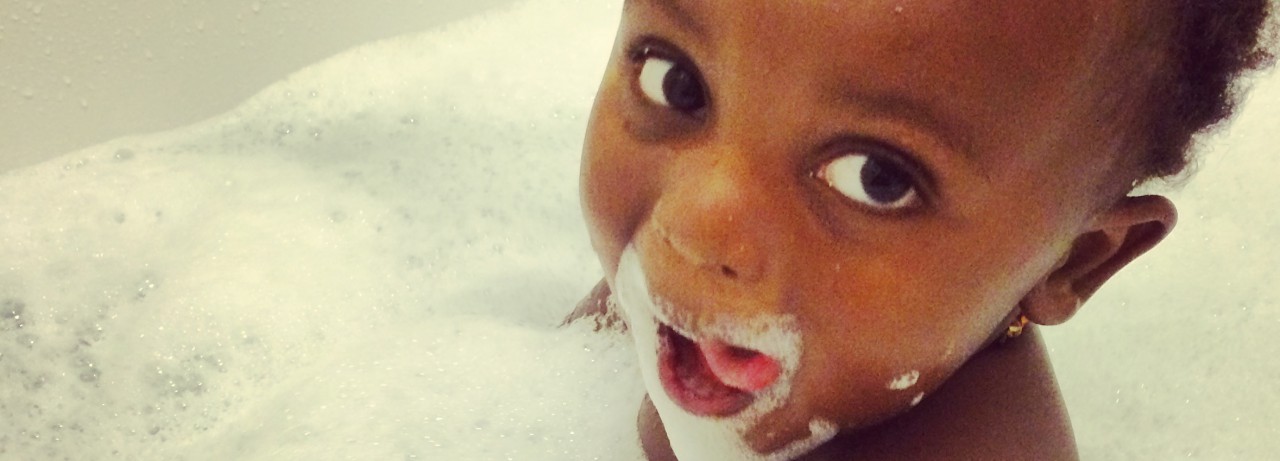 At 21 months old, Miles is still unaware that our family was brought together by adoption, or what adoption even is. I’m just ‘mommy’ and we’re pretty much always attached at the hip (my hip, because he still looooves to be carried). There is nothing in his life right now that a hug from me can’t fix. I can kiss away boo-boos and frustrations, tears and nightmares; you name it.
At 21 months old, Miles is still unaware that our family was brought together by adoption, or what adoption even is. I’m just ‘mommy’ and we’re pretty much always attached at the hip (my hip, because he still looooves to be carried). There is nothing in his life right now that a hug from me can’t fix. I can kiss away boo-boos and frustrations, tears and nightmares; you name it.
Right now, everything is so perfect and simple.
But I have a secret: Lately, at night, when the house is quiet and everyone is asleep, I’ve been getting a little scared. Not of the dark. But of adoption.
Not of adoption itself, but of the way Miles may feel about it when he understands what it means. All too soon, he will become aware of the one thing that I won’t be able to kiss away: the fact that he was not born to me. And I worry about how he will feel when he realizes what that means.
Like every other parent, I want to protect my child from the world. But unlike every other parent, I know that there is major heartbreak in his near future: the loss that he will experience when he becomes conscious of his first family. I have always known this was coming but it has always seemed so far off. The closer it gets, though, the more I’ve begun to think about–and secretly dread–it. The day when he understands will be here sooner than I’m ready for it to be.
Part of me is also a tiny bit scared that his feelings for me could somehow change–or become complicated, at least–when he realizes that our family was formed differently than other families and that he has another mother out there. It’s not that I’m jealous or don’t want to share him or his love. That’s not it at all. I love his birthmother. She gave me the greatest gift that anyone possibly could and she changed my life for the better forever. He is and always will be part of her and vice versa and I will always honor that and do what I can to support that relationship. I know that he will always love me. I’m his mom. I know this.
But I just don’t want the way he feels about me to change at all. Ever. I don’t want anything about our relationship to change.
Will he say mommy differently or settle less comfortably in my arms? Will he feel differently somehow about our little family? Will it be the same? Will he still run to me when he’s hurt and scared, tired or upset? Will he still light up when he sees me after I’ve been away, yelling my name and jumping into my arms? Will he feel as positive about his adoption as I do?
I know that I am being silly. I love the fact that our family was formed through adoption, and I love him more than anything in the world. I am confident in our love. Our bond is as strong as it could be. I know that we will grieve his loss together and that he will be okay because he is strong and resilient. I’m trying to prepare him by telling him his birth story and introducing the concept of adoption long before he understands. I know that I shouldn’t be scared of this.
And I’m usually not. But sometimes… every once and awhile… I am.
I’m sharing this with you because I imagine it’s pretty common for adoptive parents to feel this way. It’s a reality that our children have to deal with big, complicated emotions at a young age and that it won’t always be easy. I think the most we can do is to be strong, love them the best we can, be honest with them, and create a safe space for them to share their feelings with us.
Any other adoptive parents ever feel this way?







